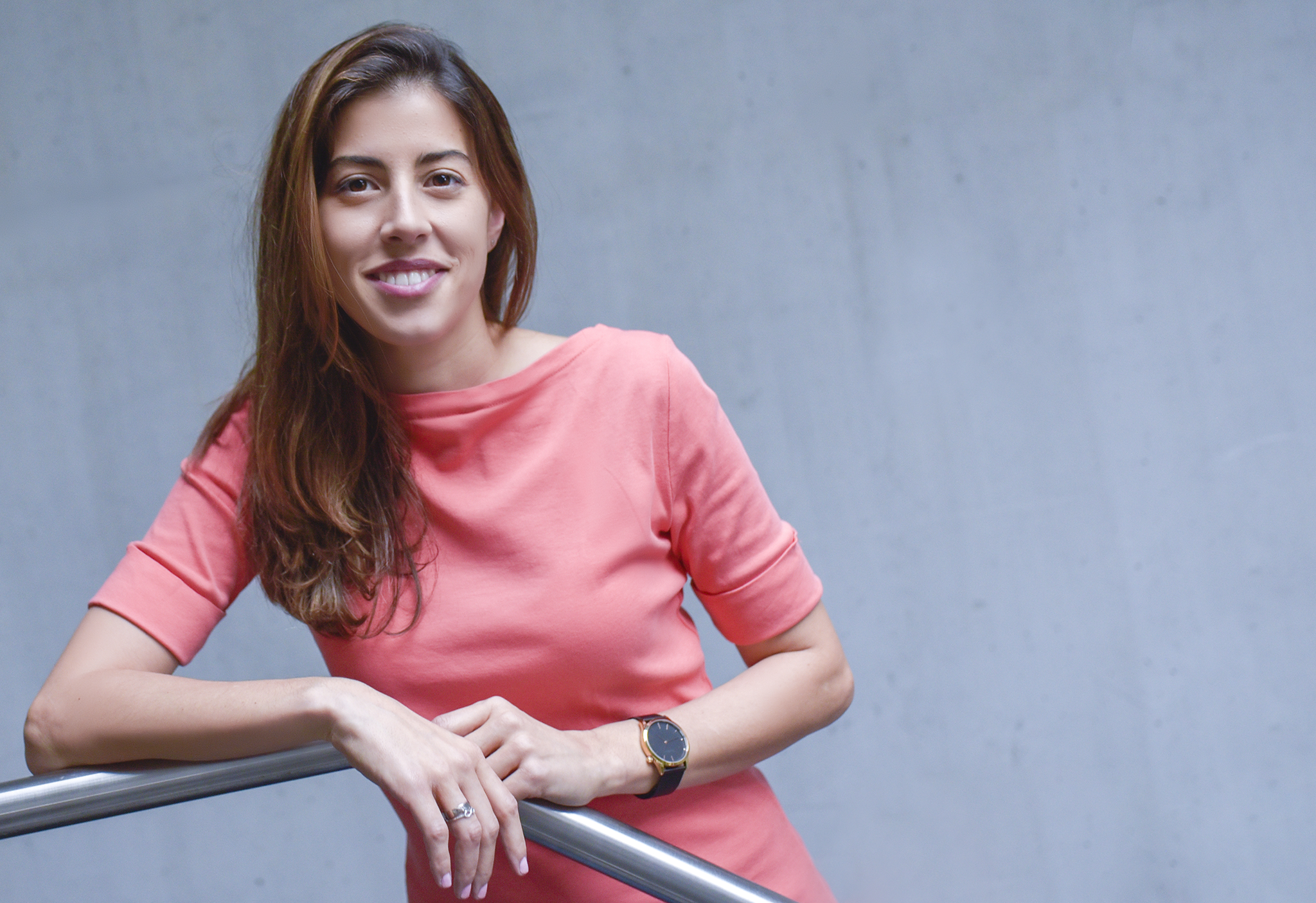 Dr. Estefania Munoz Diaz, miniVERSUM Akademie / German AerospaceCenter (DLR), is taking part in Soapbox Science Munich on 1st June 2019 with the talk: “The future will be digital. Do you understand robots?“
Dr. Estefania Munoz Diaz, miniVERSUM Akademie / German AerospaceCenter (DLR), is taking part in Soapbox Science Munich on 1st June 2019 with the talk: “The future will be digital. Do you understand robots?“
Soapbox Science Munich: What challenges do you encounter in your career?
Estefania Munoz Diaz: I’m working at the German Aerospace Center (DLR) in Munich. I got pregnant when I was at the final stage of my PhD. I decided to deliver the manuscript before delivering the baby, and this decision was one of the turning points in my career. I must admit that it was a very hard time, because the combination of pregnancy and PhD was challenging. I still remember breastfeeding my three months old baby just before defending my PhD in front of the jury. Looking back I’m glad that I took this decision, it was the right one for me. Now we are a little family of four.
In my institute at DLR, and I think this is a general trend, women keep working for years part time after the maternity leave. We do have only one female group leader and no female department leaders. I have got many “comments” from my own colleagues because I returned to work two months after delivering. My husband and I decided to reduce our working hours to 50% during our parental leave. In my opinion both, parental leave and the time afterwards, must be shared always equally between both parents. Only this way one day the entire society will consider children as matter of both parents, not only the mother. And this day having as many women as men in leading positions will be a reality.
SSM: What motivates you to give a talk in Soapbox science?
EMD: I personally think that disseminating science is as important as creating science. Therefore, I see as our duty to take every opportunity to bring science and technology closer to the general public. Especially for kids, who are born in a digital era, it is of crucial importance to present them the technology in a way that they are not only passive users of digital gadgets, but developers of future technologies. As Obama said “don’t just play on your phone, program it!”
SSM: What was the key event that brought you to the place where you are now?
EMD: I was in Berlin participating in a seminar and we had an exercise consisting of identifying our “career anchors” (by Edgar Schein). As a result of this exercise I decided to start my own company. miniVERSUM Akademie is an organization for children from four to 14 years old that offers workshops, courses and holiday camps with focus on robotics, coding and science experiments. miniVERSUM Akademie gathers my main drivers: On the one side, it covers my technological and independency needs. On the other side, it is a familiar company where even our children are part of it. Of high importance to me given my background, is to get more and more girls excited about technology. Thus, we regularly offer workshops free of charge for girls, moms and grandmas, e.g. girls’ day and mothers’ day among others.
SSM: What’s your favorite science superhero power?
EMD: I definitely love working with kids. I am still amazed how fast they absorb new concepts. Their problem solving thinking sometimes overtake my expectations. When I prepare challenges for them, sometimes they solve the problem in a way I did not even think about. In most of the cases I use robots and drones to “solve” real challenges, as for example cleaning up the plastic of our oceans or leading bees to flower fields.
SSM: What can we do to attract more women to STEM fields?
EMD: It is a reality: young women are nowadays so well prepared as never before. However, STEM studies are in comparison less chosen by women. In my opinion STEM women should make their voice loud and be more visible in order to be an example for those girls that have to choose now. For those little girls and boys who still did not even think about their career path, STEM women have to keep visible, so these little girls and the entire society one day will consider it normal that men stay at home as much as women stay and women are successful at work as much as men are.
